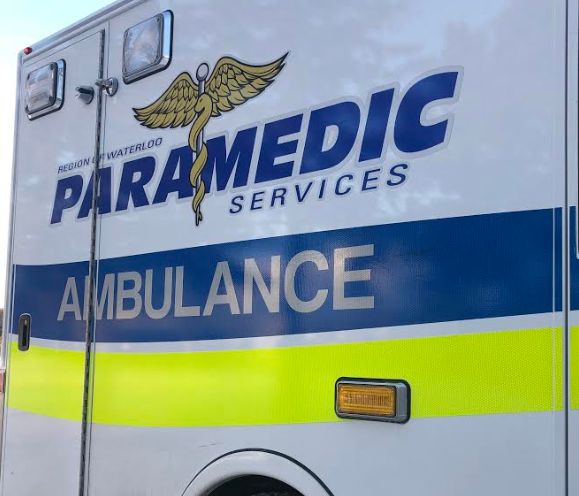Local paramedics are feeling the strain of mounting code reds, call volumes, and offload delays.
"We lost over 20 paramedics this year to other careers and other services," said Dave Bryant, vice-president of CUPE 5191, the union representing Waterloo Region paramedics.
He said paramedics are regularly scheduled for 12-hour shifts that wind up being 13 or 14 hours.
"We're going that long without any kind of downtime. We're taking our breaks while on offload delays, standing in a garage eating a sandwich if we can, or eating our cold food. I'm not trying to sound whiny or anything, but that's contributing to the burnout factor," he said.
Paramedics often do it all over again the next day.
"You're working a 14-hour shift four days in a row---you take that home. You can't not take that home. It's impossible," Bryant said.
Part of the issue is offload delays that keep paramedics waiting for hospital beds and staff to free up.
Bryant recounted a recent shift change, where he took over for a patient who had been waiting in an ambulance for over 14 hours.
"And I had that patient for another seven hours on offload delay at one of our local hospitals. Over 20 hours is a bit extreme, but it does happen more than expected," he said.
Paramedics cannot simply drop off patients in hospital waiting rooms because they may require constant care.
"That's very frustrating to us because we cannot transfer care and serve our residents in the Region of Waterloo and give them the quality pre-hospital emergency care that they deserve," Bryant said.
He noted there are more code red incidents than the union can track on its Twitter page, as well as code yellows---meaning four or less ambulances available, which lead to code reds.
Bryant argued the centre of the issue is the province's failure to increase health resources enough to keep up with a growing and aging population.
"The Ministry of Health needs to really step up and open their eyes. They need to accept the reality that is being communicated by front line staff and they're absolutely refusing to do that," he said.
He also added that job satisfaction for paramedics has been "very low."
"It's really sad. The appeal to pre-hospital emergency care, paramedics has always been the adrenaline---helping people, getting out there, taking control of very serious situations, providing the best care that you can. We're not able to do that," Bryant said.



